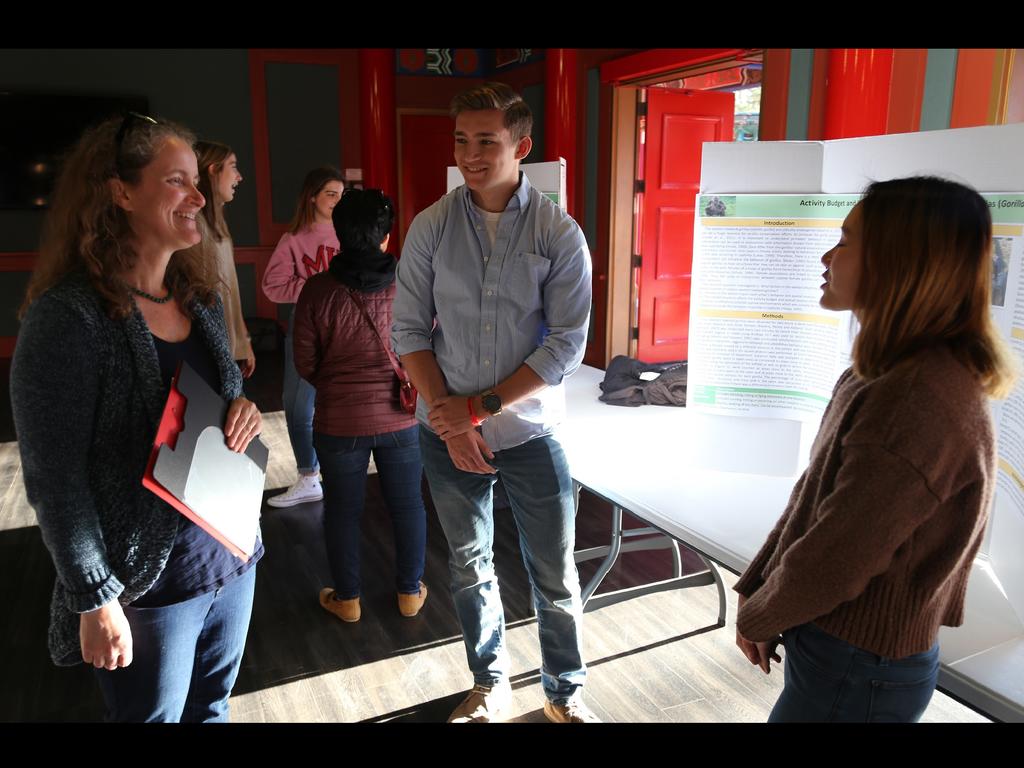What happens when a college’s neighbor is a zoo? It strengthens the college’s science program and becomes an actual classroom for students to study and observe animal care and animal behavioral, reproductive, and dietary patterns.
For the past decade, students in Dr. Sarah Boyle’s Animal Behavior course have been granted access to the Memphis Zoo to design behavioral research projects in collaboration with the zoo. These research projects have addressed many topics, but 10 independent studies on 16 species have focused on the impact of zoo visitors on animal behavior. Now the research has been published in the journal Animals for its special issue on evidence-based practice in zoo animal management.
Boyle is chair of environmental studies and sciences and associate professor of biology at Rhodes. She is listed along with 15 Rhodes alumni and Dr. Steve Rechling, who is the director of conservation and research at the Memphis Zoo, on the article titled “Widespread Behavioral Responses by Mammals and Fish to Zoo Visitors Highlight Differences between Individual Animals.”
“The goal of our study was to determine to what extent the zoo animals demonstrated behavioral changes associated with changes in zoo visitor abundance, presence, noise, proximity, or food provisioning,” write the authors. “It is important to understand the impacts that humans have on zoo animals to ensure that zoo animal welfare is not compromised. We conducted multiple short-term studies of the impact of zoo visitors on 16 animal species and found that 90.9% of the mammal species and 60.0% of the fish species studied exhibited some change in behavior related to zoo visitors.”
Animals in the study included wolves, cheetahs, lions, tamanduas, monkeys, apes, stingrays, and sharks. Numerous animal keepers provided background information about the individual animals and helped with individual identifications.
Based on their findings, the Rhodes researchers made recommendations addressing (1) the importance of short-term studies that allow for the assessment of behavioral responses by individual animals, (2) the extent to which exhibit design may impact individual animals, and (3) considerations for future research studies.
“We recommend that behavioral assessments focus on the analysis of behaviors of individual animals whenever possible, and we recommend that exhibits provide areas that allow for animals to retreat from the public view.”
Rhodes co-authors include:
- Nathan Berry ’14
- Jessica Cayton ’14
- Sarah Ferguson ’17
- Allesondra Gilgan ’18
- Adiha Khan ’13
- Hannah Lam ’19
- Stephen Leavelle ’14 related Rhodes news story
- Isabelle Mulder ’17
- Rachel Myers ’18 related student profile
- Amber Owens ’11
- Jennifer Park ’17
- Iqra Siddiq ’18
- Morgan Slevin ’12
- Taylor Weidow ‘15
- Alex J. Yu ’13
